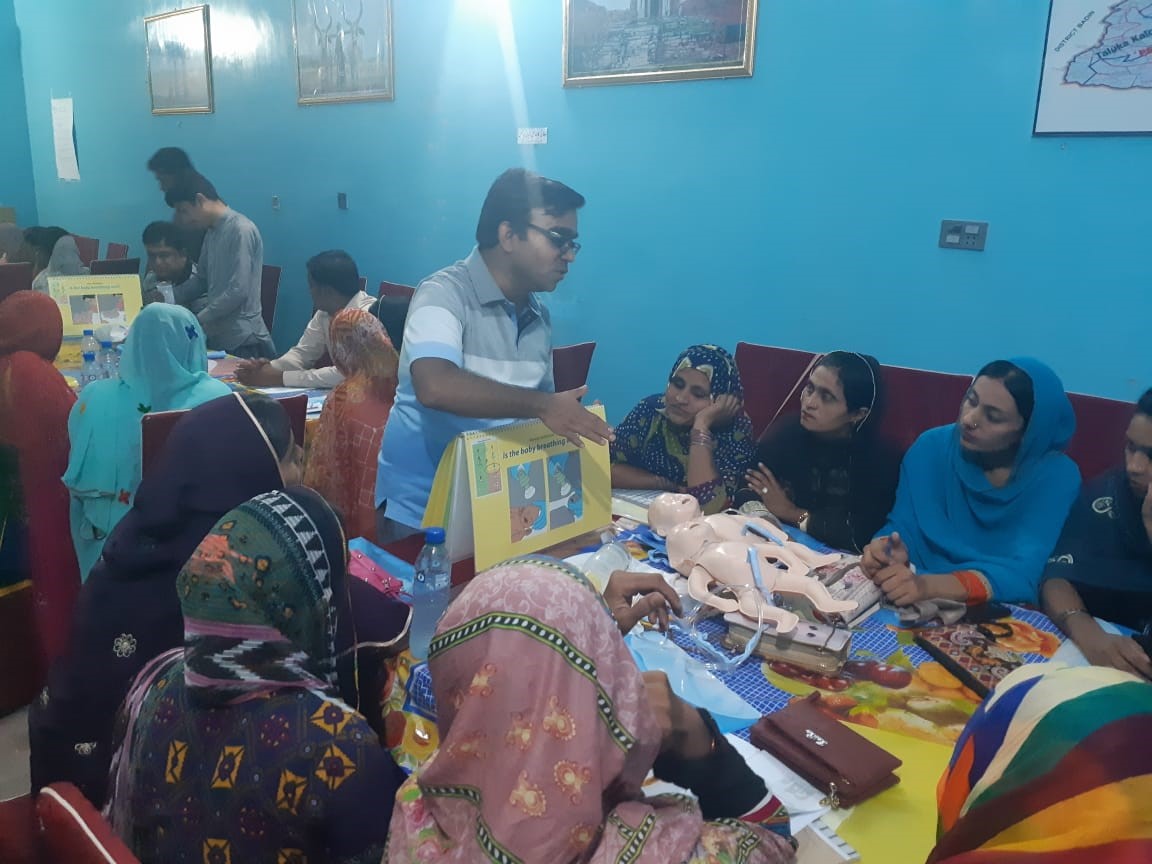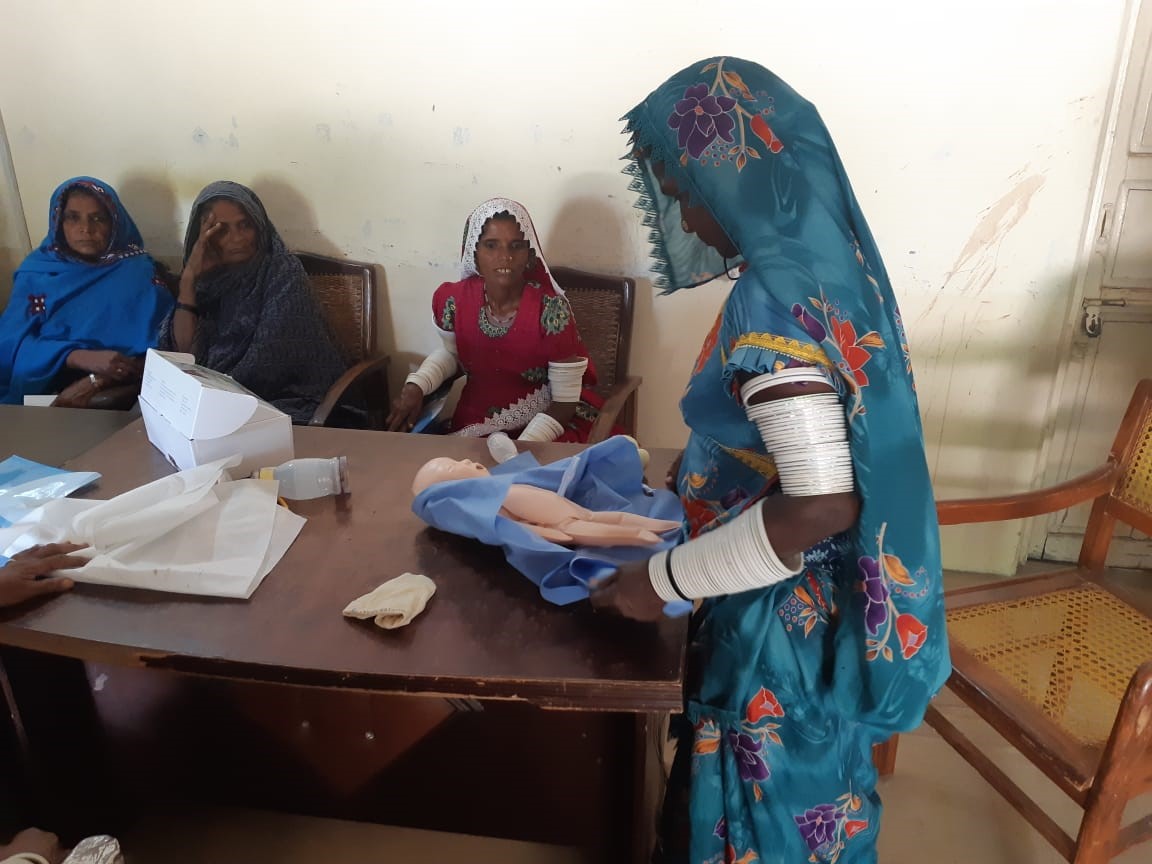By Dr. Hemandas, Pediatrician
October 2019
I had the pleasure of attending a Helping Babies Breathe (HBB) 2-day course hosted by the Royal College of Paediatrics and Child Health (RCPCH) in London on 3rd and 4th September 2019, at the suggestion of a Pakistani friend.
Working in the UK as a pediatrician, I am very familiar with the deficiencies and difficulties surrounding neonatal resuscitation. I found HBB very easy to teach and easy to understand, and thought it would be very beneficial to arrange an HBB workshops in Pakistan.
I contacted my pediatrician friend in Pakistan and requested his partnership in this endeavor. It worked out perfectly, as my friend had already attended a local HBB course – some encouragement and assistance were all he needed to move forward with arranging the workshops.
We successfully managed to hold HBB workshops from 4-6 October 2019 in 3 different remote areas of the Sindh province in southern Pakistan: Kunri, Mithi and Nagarparkar. These areas are 400+ km from Karachi, the largest city in Sindh province. We printed the HBB training materials in the local language, Sindhi, and arranged the workshop locations, food, refreshments and certificates. In total, more than 120 birth attendants were taught about the basics of neonatal resuscitation using the HBB curriculum.
Highlights
-
The participants were very active and wanted to learn. The participants were of varying clinical backgrounds, such as nurses, midwives, doctors, male birth attendants and traditional birth attendants.
-
The workshops were well-planned to include seating, teaching, and hands-on material, food, and refreshment, certificates and pictures.
-
As facilitators, it was fulfilling to receive positive feedback from the participants.
Approaches to Learning & Engagement
-
Participants were encouraged to share their personal experiences as health care providers as well as offer local context regarding care of the mother and the baby.
-
Participants were actively involved in the learning process, and were encouraged to answer questions and think about opportunities for improving quality of care in their own facilities.
-
Participants practiced neonatal resuscitation on the manikins. We also arranged and guided each learner through a small role play, where they happily and correctly simulated each step of the HBB algorithm, from attending to the mother upon admittance to the health facility for birth to discharge home.
-
Providing the participants with all the necessary teaching materials in the local language was very well-received.
Lessons Learned
-
Moving forward, these workshops should be arranged regularly in remote areas of the country, as there is a critical need for updated, evidence-based education and training that covers important essential care topics from preparation for birth to neonatal resuscitation. The easy approach of resuscitation content in HBB is much more needed for traditional birth attendants.
-
Based on discussions with participants, it seemed that almost all the birth attendants were not able to access timely assistance from qualified pediatricians at their facilities, and most of the time they have to work alone when resuscitating a baby, which is likely why the participants were keen to learn these skills. The HBB training allowed them to feel confident about effectively resuscitating a neonate.
-
The workshops were not costly to arrange, especially if participant transport expenses are not included.
-
It was difficult to motivate attendance from participants , especially those from the local health centers and hospitals, due to administrative issues. For the future, it would likely be easier to promote attendance by encouraging support and involvement from higher authorities on the local level.
-
It was easy to arrange other facilitators, teaching materials, certificates, workshop venues, and food.


Last Updated
11/15/2021
Source
American Academy of Pediatrics